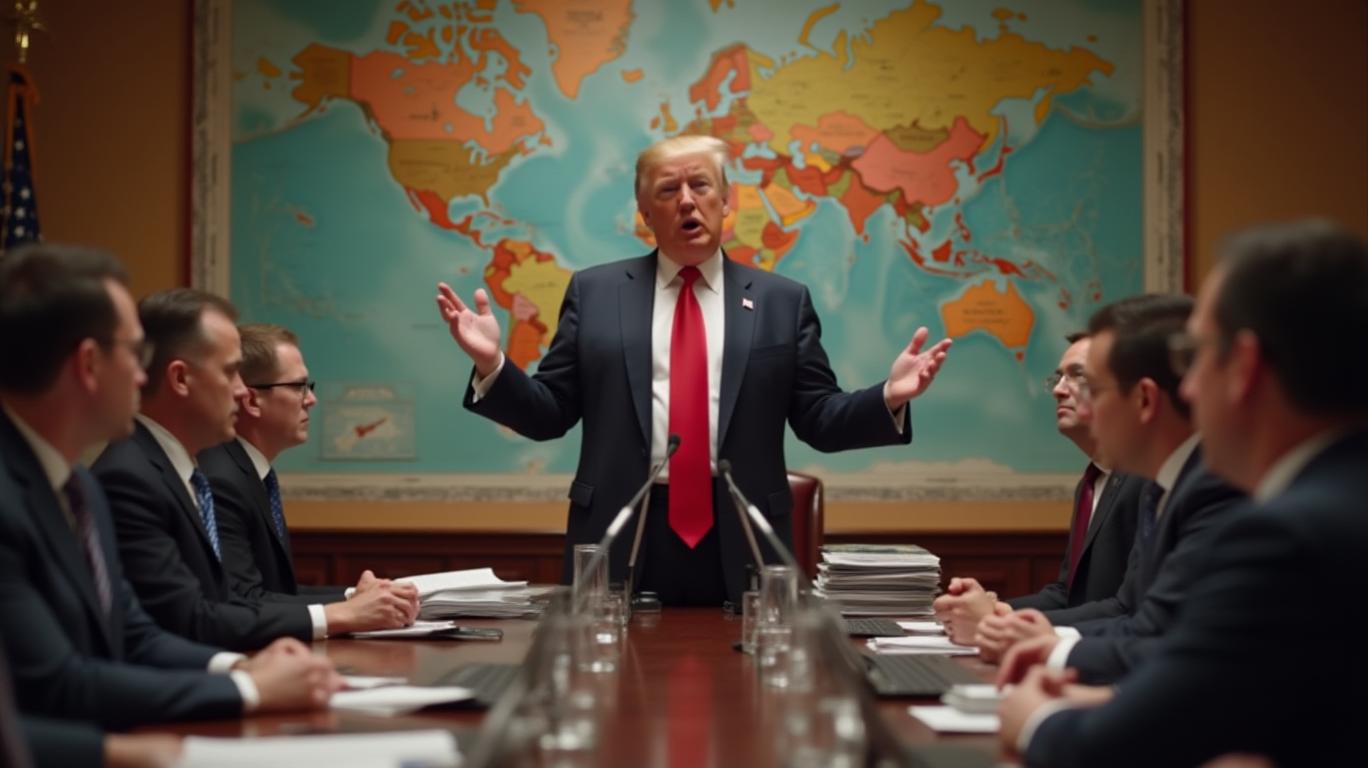More Than 50 Countries Seek Trade Talks Amid Trump's New Tariffs
President Donald Trump has returned to his Mar-a-Lago club, marking a significant moment as more than 50 countries have reached out to the White House to discuss the new tariffs he has imposed. These tariffs, set to take effect soon, have sparked a wave of negotiations as nations seek to mitigate the economic impact. The White House has confirmed that these countries are initiating trade talks to ease the severe tariffs on their exports to the United States.
The tariffs, announced in early April, represent a significant shift in U.S. trade policy. President Trump has long criticized foreign trade deals, viewing them as unfair to American interests. His administration is now pushing for negotiations that could potentially reshape global trade dynamics. Treasury Secretary Scott Bessent emphasized that addressing unfair trade practices requires a long-term approach and cannot be resolved quickly. He noted that the U.S. must carefully evaluate the offers made by other countries to ensure they are credible and sustainable.
Top administration officials, including Kevin Hassett, the White House's chief economic adviser, have acknowledged the global backlash against the tariffs. Countries, including key allies and adversaries, have expressed anger and retaliated with their own measures. Despite this, Hassett reported that more than 50 nations have approached the White House to start discussions. This indicates a willingness to engage in dialogue, even as tensions rise.
The tariffs are affecting a broad range of countries, from major manufacturing hubs to strategic partners. Israeli Prime Minister Benjamin Netanyahu is scheduled to meet with Trump to discuss the tariffs, among other issues. Vietnam, another significant trading partner, has also been in touch with the administration, seeking to negotiate the tariffs. European allies, such as Italy, have expressed disagreement with Trump's approach but are prepared to engage in negotiations to protect their economic interests.
In the U.S., the tariffs have sparked mixed reactions. While some Republican senators support Trump's actions, others have expressed concern about the potential economic fallout. A bipartisan bill has been introduced in Congress that would require presidential justification for new tariffs, with lawmakers having the final say. This move reflects the growing unease among lawmakers about the impact of the tariffs on the U.S. economy and global trade relations.
The administration's approach to the tariffs has been met with criticism from various quarters. Economist Lawrence Summers, who served as Treasury Secretary under President Bill Clinton, pointed out the contradictory messages from the Trump administration. He argued that if the U.S. eliminates tariffs in exchange for other countries doing the same, it would not achieve the goal of reviving manufacturing or raising revenue. Summers suggested that the administration needs to clarify its long-term objectives and the role of tariffs in achieving them.
The tariffs have also drawn attention from prominent business figures. Elon Musk, the CEO of TeslaTSLA-- and a member of Trump's Department of Government Efficiency, expressed a preference for a zero-tariff situation between the U.S. and Europe. This stance was met with a rebuke from White House trade adviser Peter Navarro, who suggested that Musk's comments were motivated by self-interest.
As the tariffs take effect, the global economic landscape is poised for significant changes. The negotiations underway between the U.S. and more than 50 countries will shape the future of international trade. The administration's approach, while controversial, reflects a long-held belief in the need to address perceived trade imbalances and unfair practices. The outcome of these negotiations will determine the extent to which the U.S. can achieve its economic goals while navigating the complexities of global trade.

Quickly understand the history and background of various well-known coins
Latest Articles
Stay ahead of the market.
Get curated U.S. market news, insights and key dates delivered to your inbox.



Comments
No comments yet